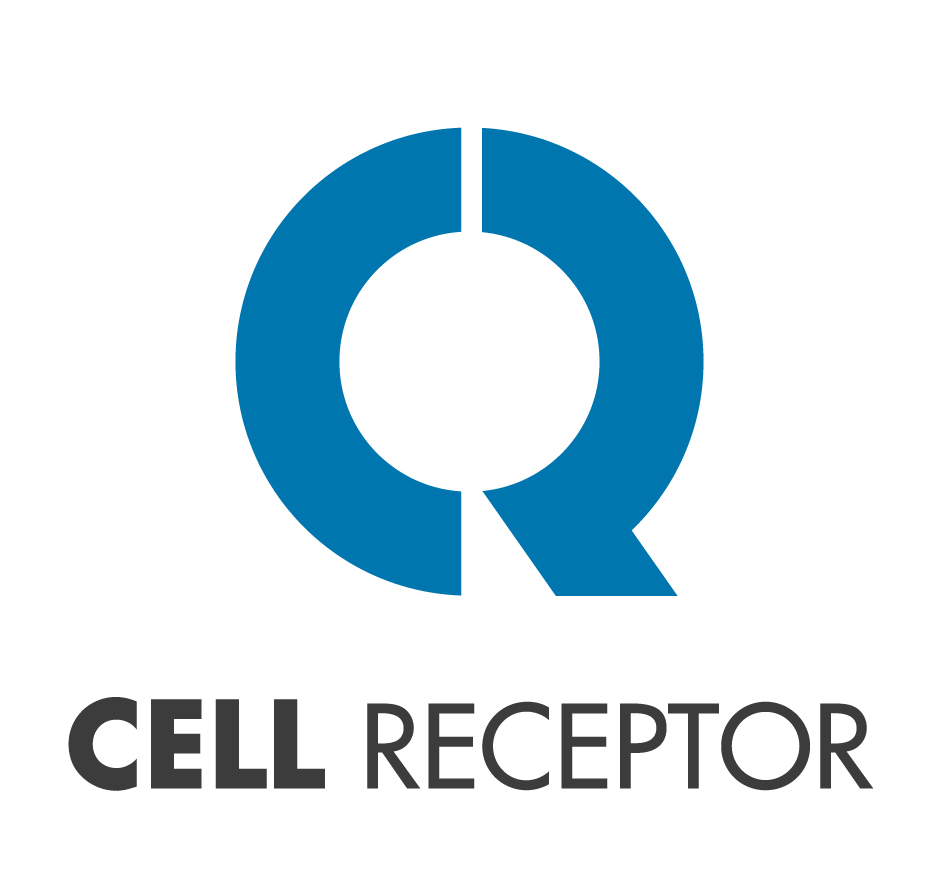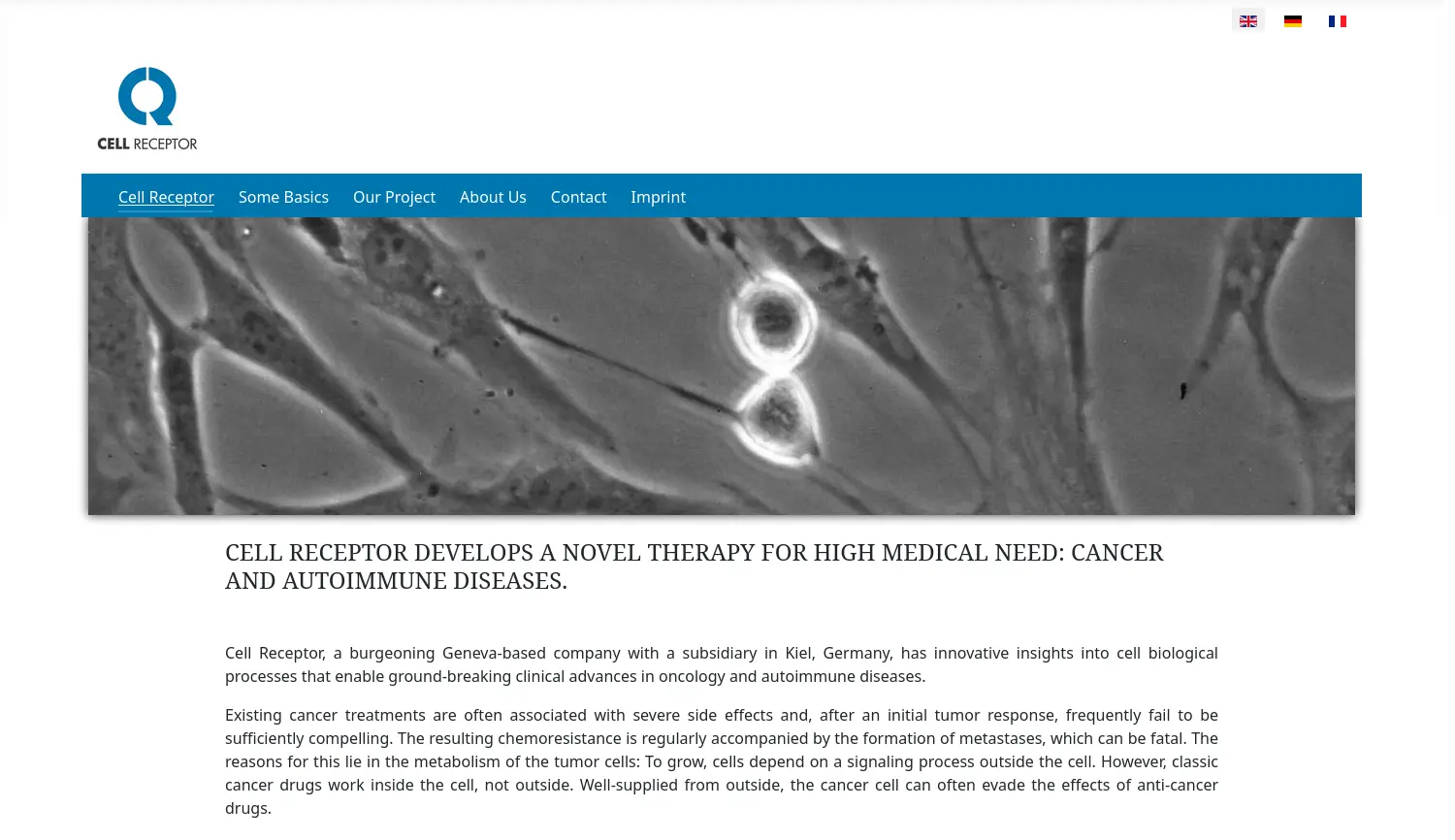Cell Receptor

Moving Cancer Treatment Forward
We have developed a well-tolerated method to meet two urgent unmet needs: Metastasis and chemoresistance. Targeting an obligate bottleneck mechanism enables cost-effective adjuvant treatment for almost all cancers. Holding granted process patents from the EU, USA, CA, AU, and JP, with a German market value exceeding 1 billion EUR, we look for funding Phase II trials and marketing and appreciate your interest.

Bitte registrieren Sie sich, oder loggen Sie sich ein, um den Website-Link der Firma zu sehen!
Über die Firma Cell Receptor GmbH
A groundbreaking clinical development: a well-tolerated prevention of cancer metastases and chemoresistance.
Cell Receptor AG, a pharma Start-up established in 2017, has developed a method for well-tolerated cancer metastasis and chemoresistance prevention. Our findings enable, for the first time, a cost-effective adjuvant treatment for almost all cancer types, targeting a universal mechanism that regulates overall cell growth. EU, USA, CA, AU, and JP have granted strong process patents targeting growth signalling in cancer. Global SOM in the scope of patents is > $10 billion.
Cell Receptor AG is led by Béatrice Fabricius, our CEO, and Hans-Åke Fabricius, our CVO. Dr. Fabricius, a renowned specialist in laboratory medicine and the discoverer of the lymphokine Interleukin 2, brings a wealth of experience in the physiology of cell growth and cellular immunology to our team. Together, they own 95% of Cell Receptor AG. Short CVs of both persons can be found on the company homepage, https://www.Cellreceptor.ch, in the "About Us" section.
As we prepare for the market launch, we are committed to a strategic approach that ensures our financial prudence and the long-term sustainability of our operations. This approach includes a feasibility study, which we plan to conduct in collaboration with a university-based German oncology clinics association and a highly experienced CRO. We are dedicated to maintaining a lean workforce until the study yields positive trends, providing a secure foundation for our future growth.
We have received a commitment for a partial investment to enable us to start our translational project. This represents ten percent of our funding requirements. We are now looking for investors who are interested in our ground-breaking project. While likely to produce an excellent return as an adjuvant treatment for existing cancer therapies, there is also scope to add it to novel cancer therapies in development that treat tumors so that the combination therapy also reduces the risk of metastasis without significant side effects. This is likely to have a massive impact on patient survival and recovery.
We are also excited to announce our strategic collaboration with a renowned German university hospital to validate our clinical treatment. Our first project will focus on treating patients with inoperable ductal pancreatic cancer using our innovative procedure. This collaboration is a significant step in our mission to bring effective treatments to those in need.
This trial will repurpose an off-patent drug, already approved by the FDA and EMA for other medical purposes, for our innovative treatment. In clinical use since the late 1960s, the drug has a proven safety and efficacy track record. Its active ingredient has only a fraction of the anticoagulant effect of heparins, making it suitable for outpatient use. It has already undergone three successful Phase I studies, which have provided valuable insights and boosted our confidence in its efficacy. Therefore, we plan a Phase II PoC clinical trial to prepare for the clinical launch. By leveraging an existing drug, we significantly reduce pre-commercialization costs, making our venture a financially sound investment. The study is projected to conclude three years after its commencement. This will be the first important inflection point.
The treatment is well tolerated. Serious adverse effects from this treatment are rare: Massive overdose can lead to bleeding complications. In rare cases, prolonged daily use can lead to macular dystrophy. Treatment will, therefore, be intermittent, and regular preventive ophthalmologic monitoring will be carried out.
